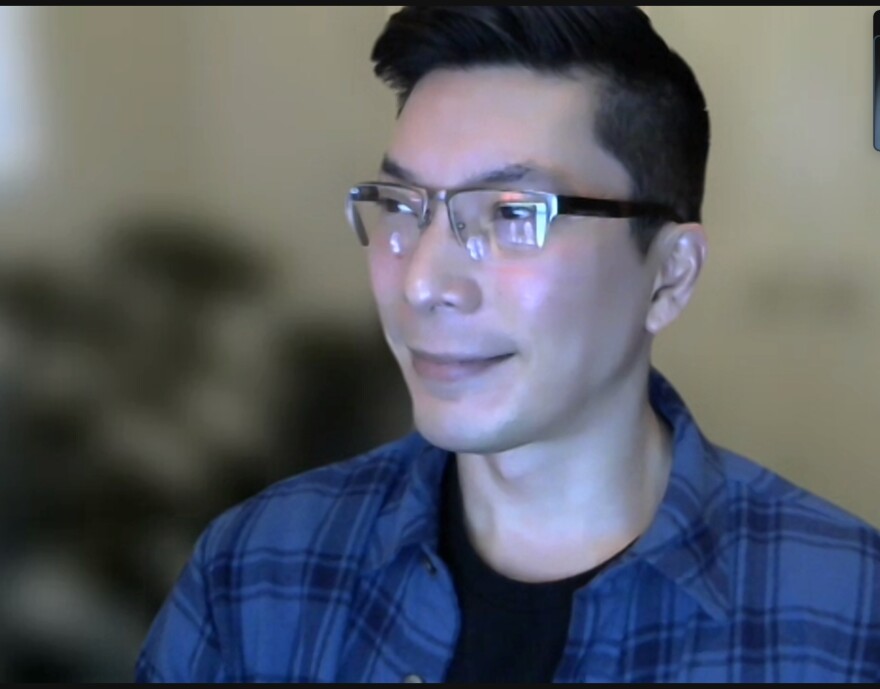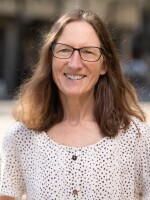About half of Oregonians worked remotely at some point in the past two years. They liked it a lot. We at the impacts of remote work as part of our series on the future of work, “Workin’ It.”
First, a reminder: This story profiles only a portion of the workforce. Fully half of Oregonians don’t have the option of working from home.
Pipeworks Studios occupies a large building in downtown Eugene. The established company makes big-name video games like Madden NFL. Ryan Camu is the VP of Development. He told KLCC, “We’ve largely been remote, the entire studio. And we’ve also been growing. I believe at the outset of the pandemic we were maybe about 130, 140. Now we’re closer to 180 and have plans to grow beyond that within the coming year.”
Pre-pandemic, the group would have needed more space. Instead they reconsidered the reasons to have an office, and they’re remodeling with fewer desks.
“It really became more of a sense of, this is a destination for collaboration," said Camu. "We are looking at more modular and adaptable spaces that foster social gatherings and team collaboration.”
Remote work has allowed Pipeworks to hire people who don’t live in Eugene. Camu said they now expect to have some employees who never set foot in the building.
A few blocks away, Revolution Design Group built out 45-hundred square feet of office space three years ago.

Co-owner Seth Revoal said, “About a year later Covid hit and everybody started working from home. And over the course of the pandemic, we’ve gradually downsized and either subleased or returned chunks of that space.”
Revoal said they’re down to about 2,000 square feet. Lately, of their six employees and six contractors, he’s the only one who regularly goes there. “At this point," he told KLCC, "they don’t necessarily want to stop working from home, and we don’t really have a good reason to make them. They’re just as productive, if not more so, at home.”
Revoal said he doesn’t see giving up the office, though. For one thing, clients like to review designs in person.
Ksana Health is a Eugene-based company that has no offices, and doesn’t plan to. Will Shortt is a co-founder of the 23-person behavioral health tech firm. It started in 2019 as a spinout from the University of Oregon. He said, “We had assumed at some point we would get offices, but we’re all very adept at working with Zoom regardless, and we’re just more efficient, and obviously it was saving us money that we didn’t have at the time.”

Having a virtual office is going well. Shortt said new hires are fine with it, adding, “We haven’t had anyone say they don’t want to work with us because we don’t have a physical office.”
Ksana programmer Brendan Lindsey doesn’t see ever going back. “Before I’d worked in a cubicle, and for part of that time I didn’t have a window," he laughed. "So I can also control distractions and all that, so working from home, for me, was a nicer experience.”
Lindsey wondered if, without people commuting to big cities, rural areas might support more restaurants and services.
Asked what’s missing, people bring up the sense of community. For example, Seth Revoal said, “Culture still arises even remotely, but it’s a little bit of a different process. I do make a point of having lunches with individual team members from time to time but it’s just different, it’s a different kind of company culture.”
Bob Parker is in the Urban Planning Department at the University of Oregon, and has done several labor surveys. He said, of the Oregonians who’ve worked remotely, “A substantial number, over 40 percent, indicated they would like to work remotely full time.”
He said over 70 percent want to work from home some days. The results surprised him.
“What we didn’t ask in the survey was how employers felt about productivity," Parker said. "Some of literature I’ve seen suggested employers have been less satisfied and many are moving back towards either a full-time office environment or a hybrid.”
Revoal said they’re hiring this spring. Because there are so many job openings right now, there’s pressure to advertise remote positions. He said, “From a staffing standpoint, and just from a competitiveness standpoint, being able to offer that option is very important.”
Anne Fifield is a planner with the City of Eugene and is very aware of changes in office use. “We’re gonna have less demand for office space per person than we did two years ago, and that is an issue given that it’s primarily an office market downtown," she said. "I think it’s going to be very important to build up some tools to encourage property owners to convert some existing office space to housing.”
Fifield said it’s been a goal to add housing downtown to keep the area economically vibrant. She said modifying existing buildings is tricky, though, because adding bathrooms and kitchens is expensive.

Parker said whether to re-envision downtowns is a big question for planners. Largely because no one knows whether the appetite for remote work will last. He speculated, “Will it stay long term? Yeah, on some level I think it will. Will it be the predominant work type? Probably not. I think it’s going to be an evolving process, and I think we’re going to see some uneven outcomes depending on location.”
Camu summarized the office situation this way, “The key to any business being successful in this scenario is just to be willing to adapt, be willing to change, and be agile about it.”
Which seems to be the consensus view these days.
Funding for KLCC's Workin' It series comes from the University of Oregon's Wayne Morse Center for Law and Politics.





